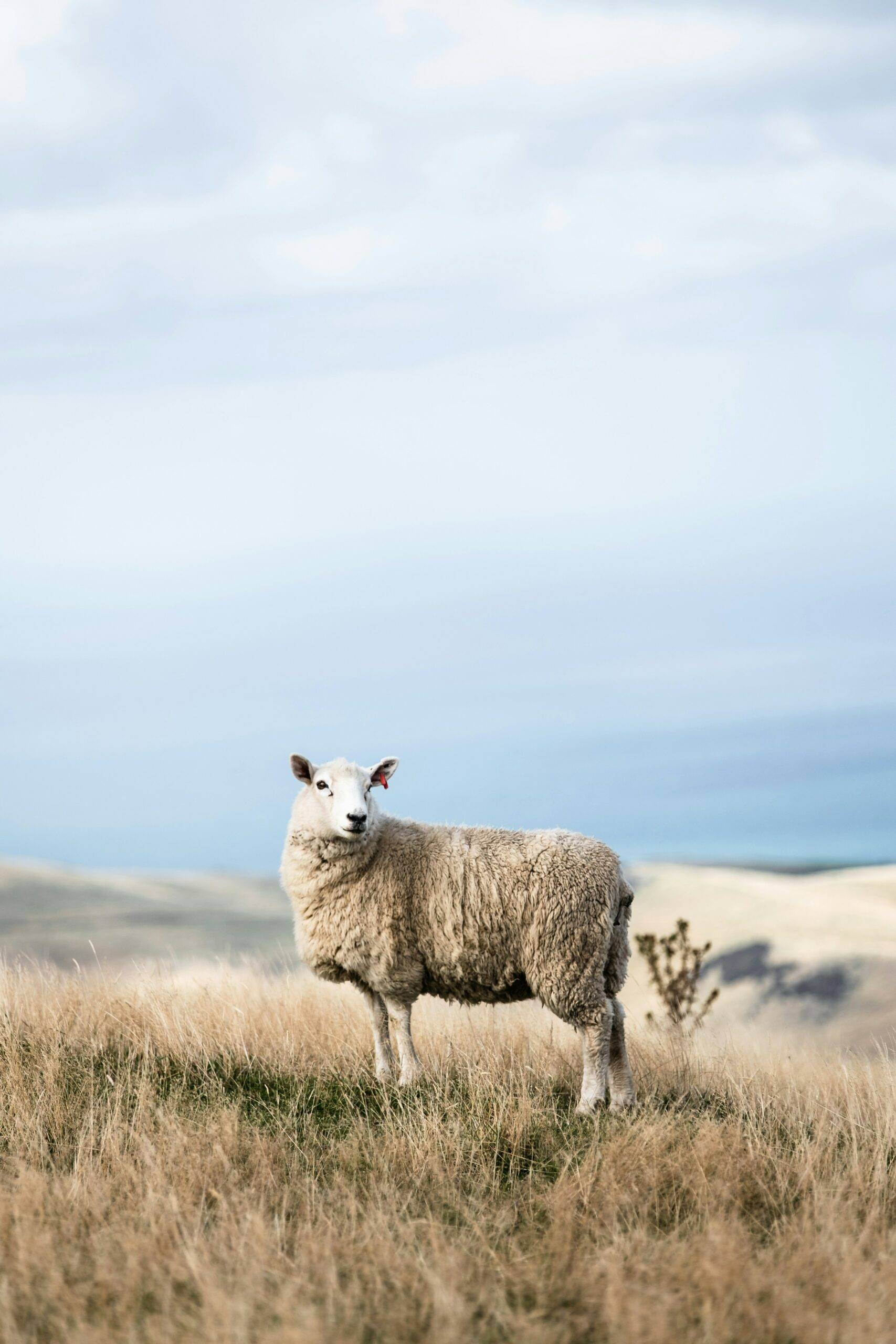Understanding Bulgarian Sheep Cheese
Bulgarian sheep cheese, heralded as a staple in Bulgarian cuisine, is a delightful indulgence that captures the rich culinary tradition of Bulgaria. This section will explore the origins and production of this cheese and delve into its nutritional value.
Origins and Production
Bulgarian sheep cheese, also known as “sirene” or “Brynza,” is a traditional cheese made from sheep’s milk in Bulgaria. With a rich, creamy texture and a tangy, slightly salty flavor, it’s considered one of the most popular and delectable Bulgarian food products.
The production of Bulgarian sheep cheese dates back centuries, a testament to time-honored methods and recipes passed down through generations. The process involves fermenting sheep’s milk with lactic acid bacteria, followed by aging in brine for several weeks.
Sirene can be made purely from sheep’s milk or a blend of sheep’s and cow’s milk, resulting in a versatile cheese that can be crumbled over salads, used in sandwiches, melted in dishes, or enjoyed on its own (source).
Nutritional Value
In addition to its delicious flavor and versatile culinary uses, Bulgarian sheep cheese is rich in nutrients. It’s a good source of protein, calcium, and vitamins, making it a healthy and nutritious choice for cheese lovers and culinary enthusiasts alike.
| Nutrient | Amount per 100g |
|---|---|
| Protein | 14g |
| Calcium | 493mg |
| Vitamin A | 208IU |
| Vitamin B12 | 1.42µg |
Whether you’re a culinary enthusiast, a cheese lover, or someone exploring the delights of Bulgarian cuisine, the rich taste and nutritional benefits of Bulgarian sheep cheese make it a delightful addition to any dish. If you’re interested in learning more about Bulgarian cheeses or where to buy them, continue exploring our articles on Bulgarian cheese and where to buy Bulgarian feta.
Comparing Cheeses
When it comes to cheese, details matter. The type of milk used, the place of origin, and the specific production method all contribute to the unique characteristics of each cheese. In this section, we’ll compare Bulgarian sheep cheese to other feta cheeses and discuss the differences between sheep, cow, and goat milk cheese.
Bulgarian vs Other Fetes
Bulgarian sheep cheese is similar to Greek feta cheese but offers a slightly different taste. It’s a versatile cheese often used as a topping for salads, baked into pastries like banitsa, or simply enjoyed on its own (Cheesemaking.com).
Compared to other types of feta cheese, Bulgarian feta is known for being stronger, saltier, and creamier (Parthenon Foods). This robust flavor profile allows it to stand out in a variety of dishes, making it a favorite among culinary enthusiasts.
Sheep vs Cow and Goat Milk Cheese
Bulgarian sheep cheese, also known as kashkaval or “Brynza,” is a traditional cheese made from sheep’s milk in Bulgaria. It has a rich, creamy texture and a tangy, slightly salty flavor, which sets it apart from cheeses made from cow or goat milk (source).
Sheep milk cheese is known for its high nutritional value. It has more vitamins and minerals than cow or goat milk cheese, adding beneficial nutrients to your diet while you enjoy its unique flavor (Woodlands Dairy).
| Type of Cheese | Taste | Texture | Nutritional Value |
|---|---|---|---|
| Bulgarian Sheep Cheese | Strong, salty, creamy | Rich and creamy | High in vitamins and minerals |
| Cow Milk Cheese | Mild to strong (depending on the type) | Varies | Lower in vitamins and minerals compared to sheep milk cheese |
| Goat Milk Cheese | Tangy and slightly sweet | Soft and creamy | Lower in vitamins and minerals compared to sheep milk cheese |
This comparison is just an introduction to the world of cheese. The best way to understand the subtleties and complexities of different cheeses, including the delightful Bulgarian sheep cheese, is to taste them. So, whether you’re new to the world of cheese or a seasoned connoisseur, there’s always something new to explore. If you’re looking for where to buy Bulgarian feta, check out our buying guide.
Uses of Bulgarian Sheep Cheese
Bulgarian sheep cheese, with its rich, creamy texture and a slightly salty flavor, is a versatile ingredient that can be used in a variety of dishes. Whether in traditional Bulgarian cuisine or contemporary recipes, this cheese adds a unique flavor profile that enhances the overall taste of the dish.
In Traditional Dishes
Bulgarian sheep cheese, also known as “Brynza,” is heavily incorporated into traditional Bulgarian dishes. One such dish is the “shopska salad,” a simple yet flavorful salad made with tomatoes, cucumbers, onions, and a generous topping of grated Bulgarian sheep cheese. The cheese adds a tangy and slightly salty contrast to the fresh, crisp vegetables, creating a perfectly balanced dish.
Another beloved use of Bulgarian sheep cheese is in “banitsa,” a traditional Bulgarian pastry. This savory pie is filled with a mixture of the cheese and eggs, wrapped in phyllo dough, and then baked until golden and crispy. The cheese melts beautifully in the oven, giving the banitsa its characteristic creamy and rich interior (Cheesemaking.com).
For those who prefer their cheese as the star of the show, Bulgarian sheep cheese, also known as kashkaval, can be enjoyed on its own or served as part of a meze platter. Sliced and lightly fried, it makes a delicious appetizer that is sure to impress your guests.
In Modern Cuisine
While Bulgarian sheep cheese holds a significant place in traditional cuisine, it has also found its way into modern recipes. This cheese is often used as a substitute for Greek feta, adding a unique twist to Greek salads, pasta dishes, and more. Its tangy and slightly salty flavor pairs well with various ingredients and can elevate the taste of your dishes.
Apart from being used in salads and pastries, Bulgarian sheep cheese can also be incorporated into pasta dishes, omelets, and even pizza, where it adds a creamy and tangy element. Its melting quality makes it an excellent choice for dishes that require a gooey, melted cheese.
Whether you’re exploring traditional Bulgarian dishes or experimenting with modern recipes, Bulgarian sheep cheese is a flavorful and versatile ingredient that can enhance your culinary creations. For more information on where to buy Bulgarian sheep cheese, visit our guide on where to buy bulgarian feta.
Buying Bulgarian Sheep Cheese
For those who are seeking to indulge in the rich, creamy flavor of Bulgarian sheep cheese, there are a variety of purchasing options available. Depending on your location and preferences, you may find this delightful cheese at local stores and markets or through online retailers.
Local Stores and Markets
Bulgarian sheep cheese, also known as “Brynza,” has gained popularity worldwide and is now exported to various countries. As such, it may be available in local specialty cheese shops, gourmet food stores, and international markets.
When purchasing Bulgarian sheep cheese locally, it’s important to ensure that the cheese has been properly stored and is fresh. Look for cheese that is refrigerated and sealed in a plastic package. The cheese should have a salt content of 4.5% and a minimum fat content of 50% in dry matter, as indicated on the label (Parthenon Foods).
Online Retailers
If local stores do not carry Bulgarian sheep cheese, or if you prefer the convenience of online shopping, several online retailers offer this product. Online shopping allows you to order Bulgarian sheep cheese directly from Bulgaria or through international suppliers, ensuring you receive a product that is authentic and high-quality.
While purchasing Bulgarian sheep cheese online, make sure to review the product description and customer reviews for information about the cheese’s flavor, texture, and quality. Additionally, consider the shipping methods and policies of the online retailer to ensure your cheese arrives fresh and in good condition.
Whether you choose to buy Bulgarian sheep cheese locally or online, this unique cheese is sure to add a delightful flavor to your traditional dishes and modern cuisine. For more information about the origins, nutritional value, and uses of Bulgarian sheep cheese, explore our related articles on Bulgarian white brined cheese and where to buy Bulgarian feta.
Storing and Serving Bulgarian Sheep Cheese
After indulging in the rich, tangy flavors of Bulgarian sheep cheese, it’s important to store the remainder properly to preserve its unique taste and texture. Proper storage and serving methods can enhance your culinary experience with this traditional Bulgarian delicacy.
Proper Cheese Storage
Like most dairy products, Bulgarian sheep cheese should be kept refrigerated to maintain its quality and prolong its shelf-life. The cheese usually comes in a plastic package that helps to retain its moisture and prevent it from drying out. Store the cheese in its original packaging, or if opened, wrap it tightly in cling film or wax paper before placing it in the refrigerator (Parthenon Foods).
Remember to keep the cheese away from strong-smelling foods as it can absorb other odors, which can alter its taste. Also, do not freeze the cheese as it can change its texture and affect its original flavor.
Serving Suggestions
Bulgarian sheep cheese is versatile and can be used in a variety of dishes. Its rich and creamy texture along with its tangy and slightly salty flavor make it a delicious addition to salads, pastries, and sandwiches.
One of the most popular ways to serve Bulgarian sheep cheese is as an appetizer or as part of a meze platter. The cheese can be served as is, or it can be coated in flour, egg, and breadcrumbs before being fried until golden and crispy, offering a delightful contrast of textures (The Spruce Eats).
Alternatively, Bulgarian sheep cheese can be crumbled over fresh salads, incorporated into pasta dishes, or used as a topping for pizzas. Its unique flavor profile pairs well with fresh fruits, nuts, and honey, making it a delightful addition to cheese boards.
Whether you’re enjoying Bulgarian sheep cheese in traditional dishes or experimenting with it in modern cuisine, remember that the key is to savor its unique flavors and appreciate the traditional production methods that contribute to its high quality. Explore our other articles to learn more about Bulgarian sheep cheese and where to buy it, including where to buy Bulgarian feta and Bulgarian feta cheese near me.




Leave a Reply